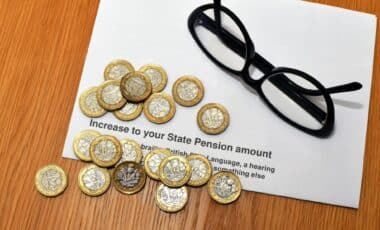Teachers at Coventry’s Bablake and King Henry VIII schools are set to strike for eight days this month, protesting reduced pension contributions and what unions describe as “fire and rehire” tactics.
The schools, under pressure from Labour’s VAT policy on private school fees, are grappling with escalating costs, prompting staff to resist changes that could significantly impact their retirement benefits. This conflict raises broader concerns about the sustainability of independent education in an increasingly challenging economic and political climate.
The Growing Crisis in Teacher Pension Funding
At the heart of the issue is the Teachers’ Pension Scheme (TPS), long considered a hallmark of teacher benefits. Offering inflation-linked, lifetime pensions, the TPS requires an employer contribution of 28.68%—a cost that many private schools now find untenable.
Developments:
- Pension Contributions Slashed: The Coventry School Foundation, which runs both schools, announced it will lower its contribution to 19.5%, leaving staff to top up the shortfall.
- Fee Increases: Despite raising tuition fees by 16% last year—from £5,300 to £6,169 per term—schools claim they cannot meet TPS obligations.
- “Fire and Rehire” Threat: Staff refusing the new terms face the termination of existing contracts, a move unions describe as “bullying and intimidating.”
Union Outcry Over Employer Tactics
NEU General Secretary Daniel Kebede echoed this sentiment, describing the proposals as a “financial hit” compounded by the threat of dismissal. He added: “Such acts of bad faith are causing untold damage to staff morale across the sector.”
The NASUWT and NEU have fiercely criticised the foundation’s handling of the situation. Dr Patrick Roach, representing NASUWT, called the approach “fire and rehire tactics,” accusing the employer of forcing staff into an impossible choice: “being worse off now or worse off in the future.”
NEU General Secretary Daniel Kebede echoed this sentiment, describing the proposals as a “financial hit” compounded by the threat of dismissal. He added: “Such acts of bad faith are causing untold damage to staff morale across the sector.”
A National Crisis for Independent Schools?
The Coventry schools are not alone. Since 2019, over 400 private schools have exited the TPS due to spiralling costs. Labour’s VAT policy on fees, alongside rising National Insurance contributions and the removal of business rate relief, has heightened the financial strain.
Broader Implications:
- Closures Looming: Three private schools have already shut their doors in 2025, with more expected to follow.
- Staff Recruitment Challenges: Reduced pension benefits risk deterring talented educators from joining the independent sector.
- Fee Hikes Across the Board: Many schools have increased tuition fees to cover costs, raising questions about affordability for middle-income families.
A Tale of Two Sectors: State vs. Independent Schools
State schools remain unaffected by these pressures. With TPS contributions funded by taxpayers, public sector teachers recently benefited from an inflation-busting 2.8% pay rise announced by Chancellor Rachel Reeves in December.
Ginny Lovell of the Coventry School Foundation highlighted the disparity, stating: “State schools are not facing the same challenge and can continue with contributions at 28pc of salary because their payments are funded by the taxpayer, whereas in the independent sector it is funded by school fees. In the light of these rising costs, we have had to take responsible decisions to ensure the financial viability of the schools.”









